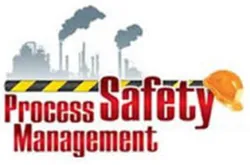.jpg)
.jpg)
Whilst the technique is highly effective, it does consume considerable resources to achieve an effective study. It is therefore vital that resources are directed where they are most needed so that the study is targeted for efficiency. Therefore, the role of the Team Leader is crucial in achieving the study goals.
Although HAZOP techniques have traditionally been applied to the process and oil/gas industries, they can be equally employed in other industries, activities and tasks. Ideally HAZOP techniques should be applied at the project development stage as part of the project HSE plan, but can also be applied to existing systems/processes as well as for process modifications.
By the end of this course delegates will be able to:
This seminar is primarily designed to meet the needs of potential HAZOP Team Leaders and Scribes, to provide them with the necessary skills and framework to guide the HAZOP team members through the various stages of the analysis to the production of a HAZOP report and action plan. This course is also aimed at all personnel involved in the process of risk analysis drawn from every level of process operations, production, design, maintenance, and health & Safety.
This interactive Training will be highly interactive, with opportunities to advance your opinions and ideas and will include;
DAY 1
DAY 2
DAY 3
DAY 4
DAY 5
CDGA attendance certificate will be issued to all attendees completing minimum of 80% of the total course duration
| Code | Date | Venue | Fees | Register |
|---|---|---|---|---|
| HSE171-02 | 05-04-2026 | Cairo | USD 5450 | |
| HSE171-03 | 13-09-2026 | Manama | USD 5450 | |
| HSE171-04 | 23-11-2026 | Kuala-Lumpur | USD 5950 |

This comprehensive training course is designed to equip participants with the skills and knowledge needed to lead Hazard and Operability (HAZOP) studies effectively. The course will cover the principl ...

HAZOP, or Hazard and Operability Studies is the principle risk assessment technique used for new projects and process modifications and to comply with the Management of Change ‘MOC’. It is also used t ...
.jpg)
The foundation of any successful process safety program is a current set of process hazard analyses (PHAs) for each of its processes. Revalidating PHAs to keep them up to date and applicable is a must ...

Why is PSM needed? Process Safety Management (PSM) is crucial in the prevention of hazards related to harmful processes and procedures. Through effective management of these processes, organizations c ...
Providing services with a high quality that are satisfying the requirements
Appling the specifications and legalizations to ensure the quality of service.
Best utilization of resources for continually improving the business activities.
CDGA keen to selects highly technical instructors based on professional field experience
Since CDGA was established, it considered a training partner for world class oil & gas institution
3012, Block 3, 30 Euro Business Park, Little Island, Co. Cork, T45 V220, Ireland
Mon to Fri 09:00 AM to 06:00 PM
Contact Us anytime!
Request Info